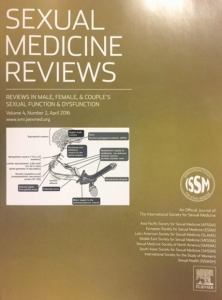Masturbation, Recovery and Sexual Health

Should men rely on frequent masturbation to prevent prostate cancer?

Many men in online porn recovery forums have heard rumors to the effect that, “Research has conclusively proven that frequent masturbation is vital to protect against prostate cancer.” When they contemplate eliminating porn use for a few months to see if their symptoms resolve, those nagging rumors can weaken their resolve.
The fact is that most of the young men who frequent these forums cannot conceive of masturbating without internet porn (and indeed, at first, often cannot masturbate without it). So, they are often hesitant to eliminate porn use, even temporarily, for fear they may develop prostate cancer from not masturbating.
Some men report that this widespread “must masturbate frequently for health reasons” meme was a reason that they continued porn use even after severe symptoms arose (such as sexual dysfunctions, concentration problems, uncharacteristic social anxiety, escalation to unsettling porn tastes, and loss of attraction to real partners, etc.). Also, after quitting, some are concerned that temporary withdrawal discomfort such as epididymal hypertension might be evidence of developing pathology.
Recently, a review on the subject of masturbation and prostate cancer risk appeared in Sexual Medicine Reviews, entitled, “Evidence for Masturbation and Prostate Cancer Risk: Do We Have a Verdict?” It examined 16 studies on ejaculation frequency and prostate cancer.
The authors pointed out that methodology differed widely among the studies they reviewed. They concluded that no direct outcomes were specifically caused by individual study variables. Protective associations (reduced rates of cancer) were reported in fewer than half (seven) of the studies, and three of these reported contradictory findings in their study populations related to controlled variables (e.g., age range).
There was some agreement across studies that frequent ejaculations later in life could lower the risk for prostate cancer, so men without regular partnered sex may benefit from some masturbation. However, as one research team noted, it is unknown whether specific aspects related to ejaculation (penetrative intercourse, masturbation, pre-ejaculation arousal, and/or nocturnal emission) are the prime protective factors. A potential confound is that healthier men may ejaculate more (at least with partners), so it would make sense for ejaculation frequency to correlate with better health.
At the same time, three of the other studies the authors analyzed suggested a causal effect of increased rates of cancer correlating with masturbation. And six studies reported no significant relations (protective or causal) between masturbation and prostate cancer risk. The authors found no significant trends with respect to population location or study methodology. The authors called for more research on various possible contributing variables in hopes of producing more definitive statements with less controversy.
These include: (1) differentiating ejaculation types (such as masturbation, partnered ejaculation or nocturnal emission), (3) defining type of ejaculation in age categories, (4) sexual risk behaviors such as prophylactic use, number of partners, frequency, and sexually transmitted infections (STI) history, and (5) early sexual activity independent of STI history.

In short, existing research does not yet justify the widespread meme that “frequent masturbation will ward off prostate cancer.”Although various factors have been suggested and/or investigated in relation to prostate cancer (obesity, occupational exposures, STIs, circumcision, vasectomy, multiple sexual partners, and, of course, sexual activity), the only recognized risk factors for prostate cancer to date are older age, race and ethnicity, and a family history of the disease.
The currently recommended protective measures are prostate-specific antigen screening, nutrition and dietary choices, physical activity, and other lifestyle and behavior modifications.
As the authors point out, masturbation is an integral sexual practice that is part of the dynamics of sexual development, particularly during adolescence. However, it’s not established that it will prevent prostate cancer. Nor is it a panacea for sexual health in general. In fact, there’s some evidence that masturbation frequency is associated with psychopathology and non-cancer prostate disorders.
The bottom line is that men needn’t be afraid to eliminate porn use, even if it means a temporary hiatus from masturbation. It also means they can have peace of mind as they ultimately figure out the ejaculation frequency that works best for them, taking into account their unique physiology and circumstances.
Counselors may also wish to be attentive to clients’ possible concerns about prostate cancer and actively address them, lest such worries impede recovery progress. A better understanding of the nuances of existing research could reduce men’s fears and possibly help them recover from problematic porn use with greater equanimity.
Submitted by Jordan Green, a member of SASH
What are your thoughts on this study?
Leave your comments below.
Disclosure Policy:
- The SASH blog is written by our active members and published by SASH. For questions about this blog, please contact executive director {at} SASH {DOT} com.
- This blog does not accept forms of cash advertising, sponsorship, paid insertions or other forms of compensation for publication of content.
- SASH is not compensated to publish blogs including those offering opinion on books, therapies, products, services, websites and various other topics. All blog authors must accurately reflect any compensation received related to or because of their blog posts. Blogs that review a book or “product” (including treatment facilities) will state any interest of the author so that the reader can easily discern that the author has said interest or receives related remuneration. Authors will be held responsible for ensuring that portions of their blog that are advertising in nature will be distinguishable by the reader from other content.
- This policy is valid from 16 January 2017.
